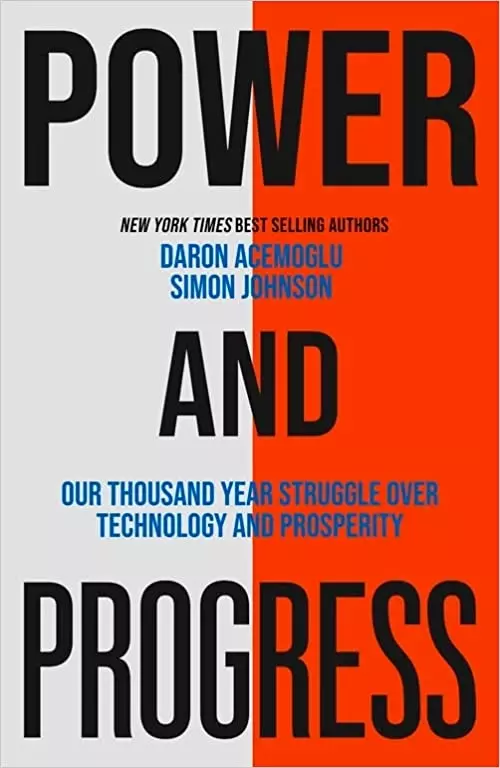Power and Progress:
Simon Johnson & Daron Acemoglu
"Power and Progress: Our Thousand-Year Struggle Over Technology and Prosperity", Simon Johnson & Daron Acemoglu
Selective narrative, unsupported assertions, and wrong about basic income
Daron Acemoglu and Simon Johnson’s polemic makes a core assertion that technology has been chosen to benefit a social elite, but could have been managed to achieve wider social benefit.
They are critical of Ferdinand de Lesseps's construction of the Panama Canal for a lack of concern they claim for workers on the project. It’s unjust that some people have the ‘power to persuade’ in project decisions. The church diverted social surplus into cathedrals, agricultural workers were coerced to deliver richesse to the elite, the industrial revolution impoverished the working class whilst amassing vast wealth for industrialists, and the early US economy was horribly racist. They attribute a post-war equalising of the share between capital and labour to increased labour bargaining power via trade unions and subsequent inequality to the demise of union power. US median real wages grew at 2.5%/year from 1949 to 1973 but then at only 0.45%.year from 1980 (p256). Labour share has declined universally (p257). Their thesis is that a focus on automation rather than new employment opportunities from technology is the cause. They are sure that there is nothing inevitable about technology, but that it is subject to social and political choice (p263). They are equally critical of Internet technology and the potential for AI.
This ignores the wide literature on the philosophy of technology which debates whether technology is autonomous or is subject to human agency. The aspiration for technology to be subject to democratic oversight from authors like Jurgen Habermas and Andrew Feenberg is not examined. Their long often repetitive text is replete with unsupported assertions. Contrary to their assertion that labour power caused the decrease in labour share, careful econometric research across 23 economies’ data at the Institute for Policy Research UK found the technology variable had more explanatory power than labour power.
The superficiality of their argument is particularly evidenced in their dismissal of universal basic income (p416-417) which they regard as ‘defeatist’ and ‘fanciful’, arguing instead for conditional targeted benefits and creation of new work opportunities from technology. They make no reference to the literature on UBI, to the huge deficiencies of conditionality creating unemployment and poverty traps as well as intrusion, humiliation, and low take-up rates. Working hours per week have reduced consistently over many decades and are set to continue to fall. In-work poverty and rising household debt show that work and wages are insufficient for household income. Technological automation is sucking income out of the economy and increased non-labour income is required, the best proposal being UBI.
The book is available here.
Geoff Crocker
Editor ‘The Case for Universal Basic Income'
www.ubi.org

